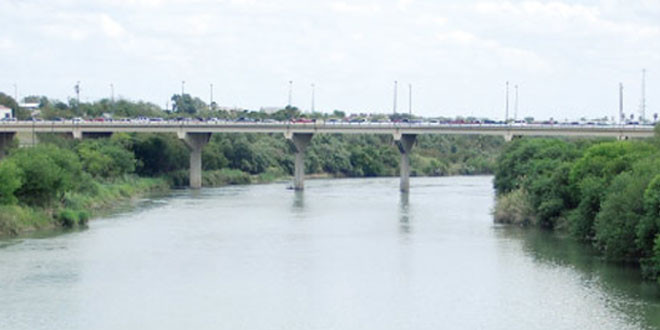While the future president of the United States continues his speech on the wall to isolate himself from Mexico, there is a small detail (and millions of liters of water) that can become his first nemesis.
The US and Mexico have an ongoing treaty (signed in 1944) to share the water of the Colorado River and the Rio Grande or Rio Bravo. In fact, US negotiators are working in record time to sign an extension of this agreement (which expires in late 2017) for at least another four years, before Obama leaves Washington.
This agreement was renewed in 2012 with a treaty (Minute 319) that regulates the supply of water for 40 million people in seven states of southern US and in two Mexican northern states.
Mexico stores some of its water from the Colorado River in Lake Mead, which runs from Nevada to Arizona, in exchange for giving up some of its water during periods of drought, which equates Mexico with US states that also have committed to give away some of that water during those periods. In exchange, water agencies in California, Arizona and Nevada buy water from Mexico, which uses some of the money to upgrade its storage infrastructure on this side of the border.
In exchange for receiving water from the Colorado River, Mexico agreed to transfer to the US some 476.7 billion liters of water per year from the Rio Grande.
After a long drought in the southern United States, if that extension is not achieved in the treaty and the Trump Wall plan advances, the farmers and cities of Arizona and Nevada will begin to have cuts of water, in an area that produces 15% of food in the US and where 36 million Americans live.
Mexico has an important negotiating power with water, since its water is the most protected in this treaty, and this subject can be taken to international arbitration and unilaterally control the supply of water of the Bravo river for the thirsty farmers of Texas.
“The two sides have great incentives to reach an agreement, but Mexico can not be pressured or intimidated. All these negative things that were said about Mexico during Trump’s campaign do not help because we depend on our southern neighbors in many ways,” says Stephen Mumme, a professor of political science at Colorado State University.
So, what if we just stand firm on this side of the border, and at the insistence of a concrete wall we propose to simply turn the tap off?
Source: milenio.com


